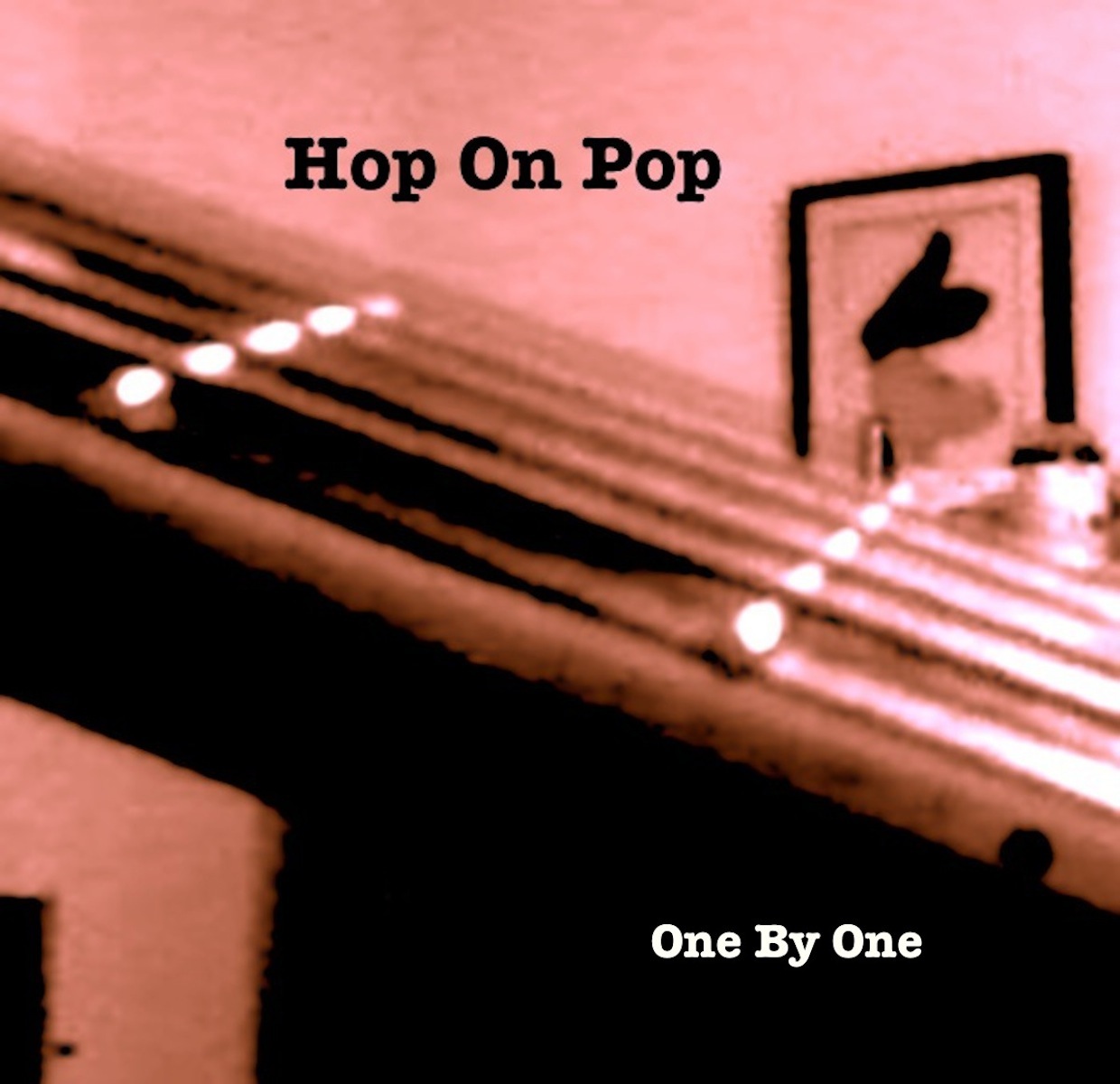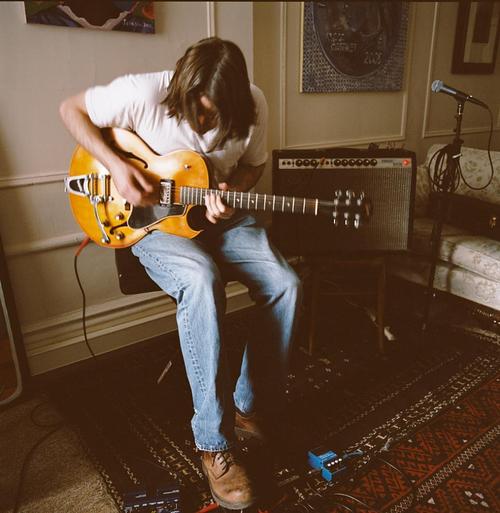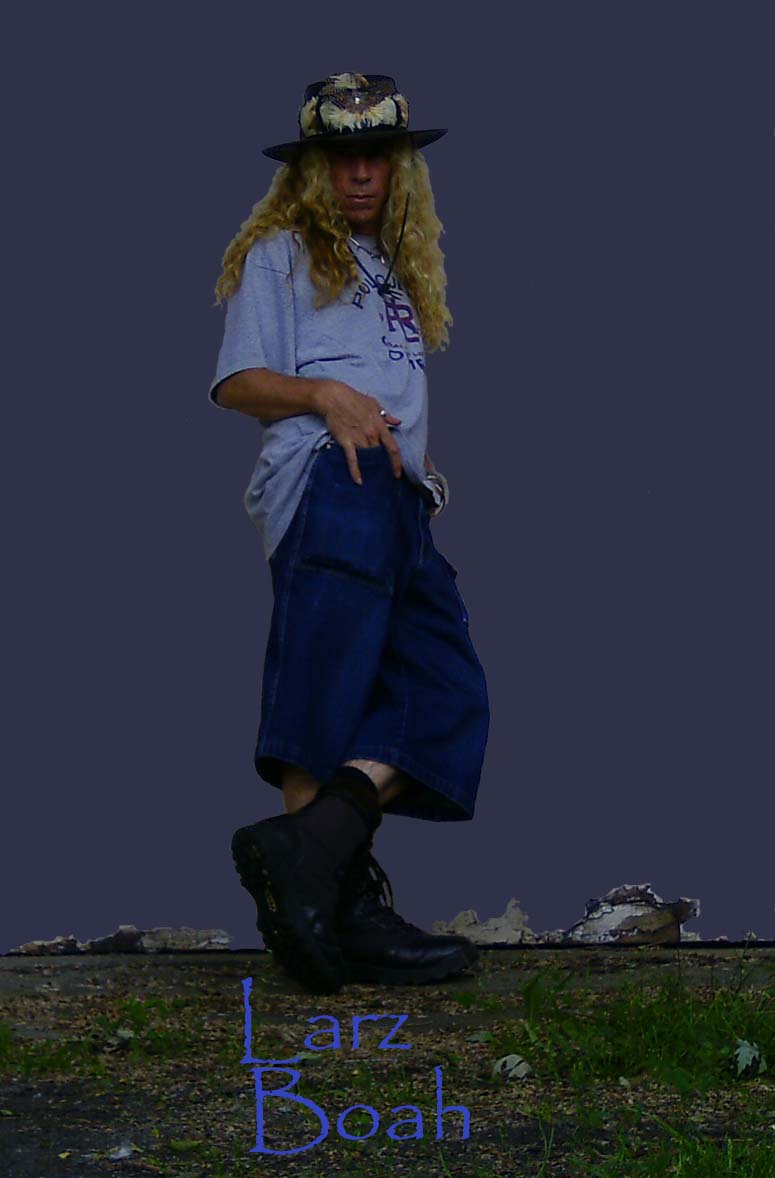| | | |

Hop On Pop
|
4/29/2008 4:58:52 AM
Oblique Strategies
And, an online version of the cards are right here:
http://www.asahi-net.or.jp/~rf6t-tyfk/oblique.html
But, what is it?
From an interview with Eno, regarding the origins of the deck:
The deck itself had its origins in the discovery by Brian Eno that both he and his friend Peter Schmidt (a British painter whose works grace the cover of "Evening Star" and whose watercolours decorated the back LP cover of Eno's "Before and After Science" and also appeared as full-size prints in a small number of the original releases) tended to keep a set of basic working principles which guided them through the kinds of moments of pressure - either working through a heavy painting session or watching the clock tick while you're running up a big buck studio bill. Both Schmidt and Eno realized that the pressures of time tended to steer them away from the ways of thinking they found most productive when the pressure was off. The Strategies were, then, a way to remind themselves of those habits of thinking - to jog the mind.
It is not clear from any sources I've run across whether the cards were explicitly intended to be oracular at the outset - that is, whether or not Peter Schmidt and Eno necessarily saw them exclusively as a "single instruction/single response" kind of "game". The introductory cards included in all three versions of the first versions of the Oblique Strategies suggest otherwise. It seems clear, also, that the deck was not conceived of as a set of "fixed" instructions, but rather a group of ideas to be added to or modified over time; each of the three decks included 4 or 5 blank cards, intended to be filled and used as needed.
Eno discusses the Oblique Strategies at greatest length in an interview with Charles Amirkhanian, conducted at KPFA in Berkeley in early 1980:
"These cards evolved from our separate working procedures. It was one of the many cases during the friendship that he [Peter Schmidt] and I where we arrived at a working position at almost exactly the same time and almost in exactly the same words. There were times when we hadn't seen each other for a few months at a time sometimes, and upon remeeting or exchanging letters, we would find that we were in the same intellectual position - which was quite different from the one we'd been in prior to that.
The Oblique Strategies evolved from me being in a number of working situations when the panic of the situation - particularly in studios - tended to make me quickly forget that there were others ways of working and that there were tangential ways of attacking problems that were in many senses more interesting than the direct head-on approach. If you're in a panic, you tend to take the head-on approach because it seems to be the one that's going to yield the best results Of course, that often isn't the case - it's just the most obvious and - apparently - reliable method. The function of the Oblique Strategies was, initially, to serve as a series of prompts which said, "Don't forget that you could adopt *this* attitude," or "Don't forget you could adopt *that* attitude."
The first Oblique Strategy said "Honour thy error as a hidden intention." And, in fact, Peter's first Oblique Strategy - done quite independently and before either of us had become conscious that the other was doing that - was ...I think it was "Was it really a mistake?" which was, of course, much the same kind of message. Well, I collected about fifteen or twenty of these and then I put them onto cards. At the same time, Peter had been keeping a little book of messages to himself as regards painting, and he'd kept those in a notebook. We were both very surprised to find the other not only using a similar system but also many of the messages being absolutely overlapping, you know...there was a complete correspondence between the messages. So subsequently we decided to try to work out a way of making that available to o
|

|

srm
|
4/29/2008 9:32:14 AM
When I first heard about the Oblique Strategies, they were described to me as a way to break a creative block, by forcing you to think in a different way, or approach the situation from a new perspective. However, I think they can also help in the same way, with non- creative situations. Getting a fresh way of looking at things generally, always helps.
|

|

Hugh Hamilton
|
4/29/2008 10:40:58 AM
My brain is currently too maxed out for this (lol), but I do find it interesting, Todd. More later, if I can break through the daily toil and the mental haze...
xxoo,
H
|

|

Larz Boah
|
4/29/2008 11:58:39 AM
Fascinating idea of mind-cards on the aspect of 'approach beyond reproach' and
like his musical journeys, ideas which expound music as unexplored territory and
thus, by mixing logic with the random act of illogical chance; unexpected results
are therefore produced. An equation, of sorts, that can lead to fresh and exciting
musical landscapes...indeed!
Thanks for sharing this intelligent Brian Eno information Todd. As always...Eno
remains fascinating and beyond the reach of 'the norm'...a path he has always
chosen and has always achieved...always with exciting results!! :))
|

|

Hop On Pop
|
10/2/2008 10:45:13 AM
Just a little bump for all of you to view and ponder this amazing system.
Again, it's completely what YOU, as the artist, makes of it.
Enjoy.
|

|

Hugh Hamilton
|
10/2/2008 10:55:24 AM
No offense to you OR Mr. Eno, but my "Obtuse Strategy" seems to work pretty well. I obtusely continue to act as though everything matters and I can make a difference in the world. I then obtusely fail to notice that in reality none of it matters and I'm making no difference. Try it! Be Obtuse!
On second thought, Oblique is probably better.
|

|

Hop On Pop
|
10/2/2008 10:58:24 AM
---- Updated 10/2/2008 10:59:18 AM
Just a little help for when you are genuinely at an impasse.
A couple of little prompts for you to consider to help you along your own way.
|

|

Hugh Hamilton
|
10/2/2008 11:09:29 AM
Former statement meant entirely as hughmor (groan) although there is a nugget of the truth in there. Without intending to be argumentative and while acknowledging the "cool" aspect of the "Oblique Strategies" I do in fact prefer to live under the obtuse illusion that my fate is in my own hands and that intense concentration and effort will bend the universe to my will. My strategy hasn't worked yet, but I'll keep yuz posted.
:)
H
|

|
_REDDISH__11-27-11_001.jpg)
Steve April
|
10/2/2008 9:53:10 PM
Hey Guys!!
Very interesting stuff, and not all that far from the rules of quantum physics.
Because quantum physics are indeed what happens on the micro level, and that's different from the laws on the macro level, but in a way provides a foundation.
All the stuff like esp and "being in the zone," so important for artists/musicians, reconciles fluidly in e.g. parallel universes, and other stuff like "back action" and quantum tunnelling.
|

|

Hop On Pop
|
10/15/2008 7:06:28 AM
---- Updated 10/15/2008 7:07:54 AM
I have been using these in my new recordings.
(In fact, I have to go back and fix some vocals... inspired by a thought brought on by a card that I drew that asked: "What mistakes did you make last time?")
EDIT: It's all about Eno today, huh? At least for me.
|

|
| |
�2015-16 IndieMusicPeople.com All Rights
Reserved
| |